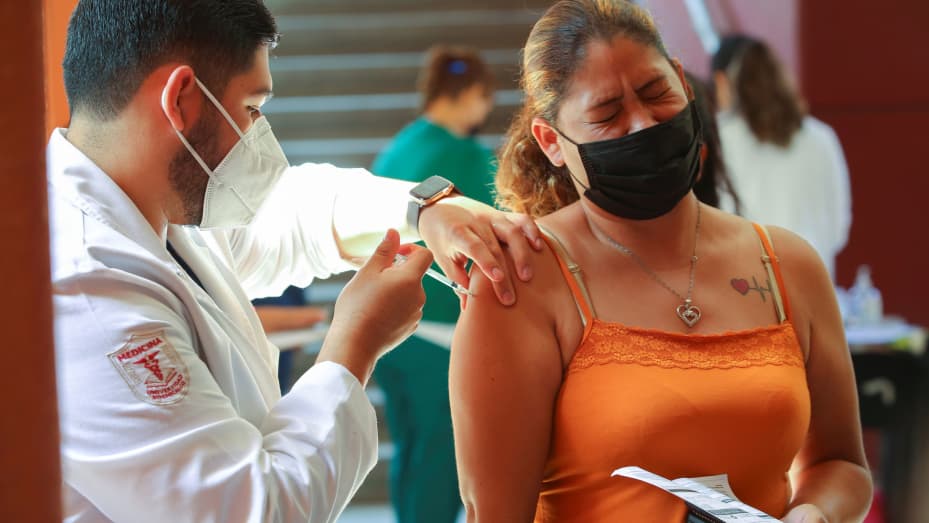To Booster-Shot Or Not?
"We do have to be in a position where we could boost [vaccine production] if it turned out that was necessary ... [but] we don't have any evidence that that is required.""At this point with a high level of protection in the U.K. population and no evidence of that being lost, to give third doses now in the U.K. whilst other countries have zero doses is not acceptable."Andrew Pollard, director, Oxford Vaccine Group
 |
The World Health Organization has estimated that in the future booster shots of anti-SARS-CoV-2 vaccine may turn out to be needed on an annual basis for the most vulnerable among any population, and that vaccination take place every other year for the general population. Much as annual flu shots are conventionally highly recommended for the elderly in a population, and available to any others who require protection against the annual appearance of viral influenza.
It is a notion that may be required for the future and which has the three major vaccine producers studying the potential efficacy of third doses, studies ongoing to test patient immunity alongside a possibility of a third dose. One study conducted by Oxford-AstraZeneca concludes that its COVID-19 vaccine produces a robust immune response. A study out of the U.S. states that the two-dose Pfizer and Moderna vaccines may continue their protective properties for years.
A third dose of the AstraZeneca vaccine given six months following the second shot substantially increases antibody and T-cell immune responses, according to the Oxford University study. It was also found that the second shot can be delayed up to 45 weeks to lead to an enhanced immune response. The level of immunity identified in the study was also seen to be positive for variants Alpha, Beta and Delta.
The U.K. government is considering the likelihood of mounting an autumn vaccine booster campaign. Britain's COVID response can only be viewed as an outstanding success, with three-fifths of its adult population having received both doses of a COVID vaccine.
Tania Watts, a University of Toronto immunologist, doubts the general public in Canada would require a third dose come fall, since published data suggest "very little drop-off: in antibody levels several months following inoculation". As far as Andrew Pollard of the Oxford Vaccine Group is concerned, evidence exists that its vaccine protects against current variants for a sustained period of time and that being the case, no such booster may be required.
An expert in immunology of infectious disease at Imperial College London, Professor Danny Altmann, states "a big question now is whether these answers will extrapolate to the mRNA vaccines". The Pfizer and Moderna vaccines -- according to a newly-released U.S. study -- set off a persistent immune reaction that may serve to protect against the coronavirus for years, according to the New York Times.
Most people, in other words, immunized with the mRNA vaccines may not need to receive a booster shot "as long as the virus and its variants do not evolve much -- which is not guaranteed".
 |
A woman reacts as she
receives the Johnson & Johnson vaccine against the coronavirus
disease (COVID-19), as part of a government plan to inoculate Mexican
border residents on its shared frontier with the United States, in
Tijuana, Mexico June 17, 2021. Jorge Duenes | Reuters |
Labels: Booster Shot, COVID-19, Immune Response, Vaccination

0 Comments:
Post a Comment
<< Home